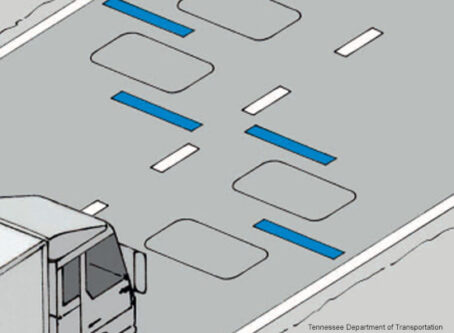Walmart must face allegations of age and disability discrimination
A Texas federal judge gave a trucker the green light to proceed with his lawsuit against Walmart, which accuses the retailer of age and disability discrimination.
In April, Judge Amos Mazzant of the East Texas federal district court denied Walmart’s motion to dismiss a driver’s lawsuit against the company. The driver, Gregory Scott Bills, claims Walmart violated the Age Discrimination in Employment Act, the Americans with Disabilities Act, and Title VII of the Civil Rights Act of 1964.
According to the court order, Bills is a veteran trucker with nearly 40 years of driving under his belt. He began driving for Walmart in Sanger, Texas, in September 2011. About seven years later, Bills underwent rotator cuff surgeries for shoulder repairs.
While Bills was on Family and Medical Leave Act leave, Bills was told by managers and human resources employees at Walmart that if he did not return to work he could lose his job. The driver had provided medical information to Walmart’s human resources department while on leave. Additionally, Bills had personally paid for his insurance from January to June 2019 after being directed to do so by a manager to keep his job.
Bills’ surgeon informed him that a second surgery would be necessary. Bills forwarded that information to Walmart’s HR. According to the complaint, HR assured Bills that his job was secure, and he did not have to worry about losing it because of medical leave. However, another HR representative told Bills that if he was on medical leave for more than a year his employment would be terminated.
Just two weeks before Bills’ one-year medical leave, his surgeon released him to return to work without restrictions.
Walmart then sent him to get a Department of Transportation physical because of his high blood pressure, Bills alleged. Walmart’s DOT-certified physician told the trucker he could not pass because he had sugar in his urine and that he should see his primary care physician to address this issue. His doctor said the sugar and high blood pressure were the result of stress and prescribed medication.
A week after being on the new medication, Bills returned to Walmart’s DOT physician for another physical. The physician denied him a new DOT card due to high blood sugar. Bills was under the impression he could drive if he complied with medications despite having diabetes, pre-diabetes or some other issue. However, the denial was based on Walmart policy, not DOT policy. Bills was told to return in a week. However, Bills visited a different physician who passed his physical.
Bills went to Walmart’s regional manager to express he felt like the Walmart doctors were intentionally trying to find reasons to deny his DOT medical card. Walmart policy requires drivers to get their DOT physical from a company physician, not an outside DOT-certified doctor.
Playing the system, Bills went to a Walmart doctor in a different city instead and passed that exam.
However, managers told Bills he could only go to the local Walmart physician for medical clearance.
After verifying that Bills received authorization to go to a different Walmart doctor, the general manager pivoted and said the medications were typed on the form and need to be handwritten. Therefore, Bills had to go back to that physician, more than 300 miles away, and get the paperwork redone.
Bills returned to the other Walmart doctor’s office, where he was informed the doctor was not there and would be at a different location the next day. The following day, Bills went to that office, but the doctor never showed up. In his complaint, Bills alleges that his inability to find the doctor who approved his physical was not coincidental. He was told to come back another day.
When Bills returned home to inform the general manager of the delay, he was told there was no need for a third physical since he had already failed two. Bills had 30 days to accept a non-driving position at Walmart, effectively ending his trucking career within the company.
According to the complaint, Walmart fired Bills for failure to timely return from medical leave.
Additionally, the driver alleged that Walmart prevented him from getting a trucking job with Martin Transportation.
Furthermore, Bills claimed that younger drivers at Walmart were treated more favorably and scrutinized less than he was. He filed a lawsuit in January.
In February, Walmart filed a motion to dismiss on the basis that Bills’ intentional infliction of emotional distress claim should be dismissed. Specifically, the retailer claimed the Texas Commission on Human Rights Act, the state’s version of Title VII, preempts federal law. Essentially, Texas law states that someone cannot bring an intentional infliction of emotional distress claim when other statutory solutions are available. The court disagreed.
“The facts supporting Bills’ intentional infliction of emotional distress claim – having to get multiple physicals and having to drive back and forth to Katy to retrieve paperwork – are distinct from the facts supporting his wrongful termination claims,” the court stated. “Accordingly, the motion to dismiss should be denied.”
Bills can proceed with his lawsuit, which requests a jury trial for an unspecified amount of damages. LL









